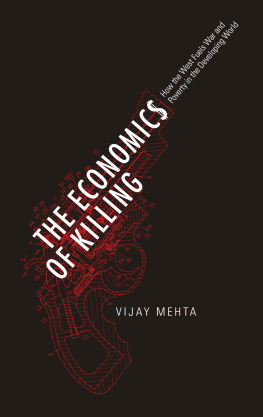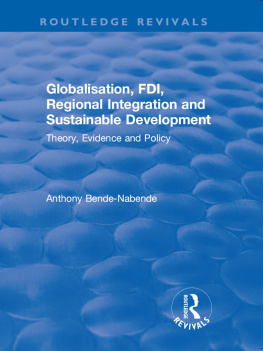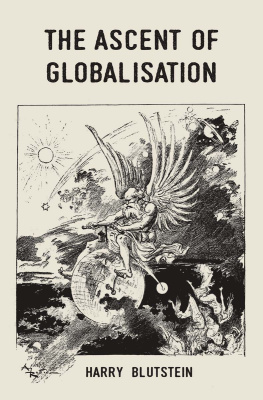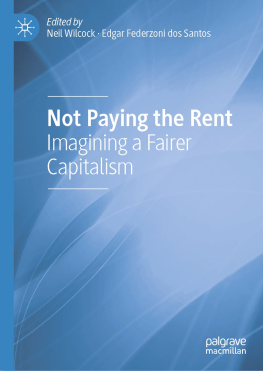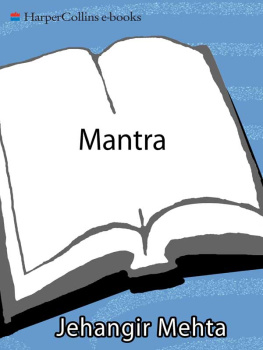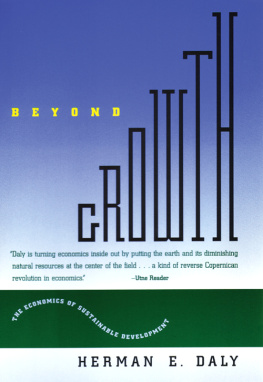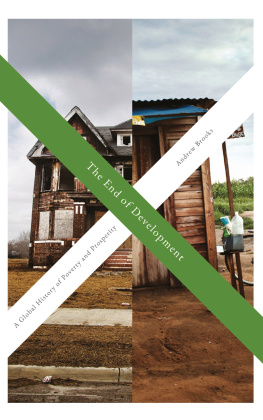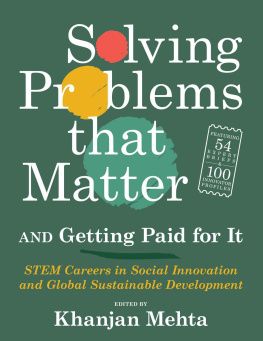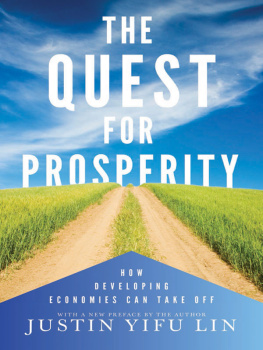The Economics of Killing
We live in a rich world and yet increasingly people are getting caught in the poverty trap and facing real hardship and pain. We know how to solve these problems by disarmament and demilitarisation, and putting human and financial resources into dealing with the real enemies of humanity: poverty, unemployment, environmental crisis, etc. Vijay Mehtas excellent book sets out the problems and solutions, and challenges us all to create the political will to implement policies which will bring about real change and give hope to humanity.
Mairead Corrigan Maguire, Nobel Peace Prize Laureate 1976. Founder, Peace People, Belfast, Northern Ireland
The Charter of the United Nations starts in this way: We, the Peoples ... have resolved to save the succeeding generations from the scourge of war... But instead of better sharing and building peace through social justice and economy guided by the democratic principles so well enshrined in the UNESCOs constitution and by the Universal Declaration of Human Rights, the sinister proverb if you wish peace prepare war has been secularly applied by male rulers. And plutocratic (G7, G8) groups have taken over the functions of the United Nations, and have placed the market in the very core of the world governance .... The result is a profound financial crisis that hides the most urgent planetary challenges as access to food and health of all human beings, the environmental progressive degradation; the lack of horizons of the humanity worldwide.
The net balance is $4 billion per day in military expenditures while 70,000 persons die of hunger ....
The book ... is extremely timely and provides what is extremely important and must be underlined not only excellent diagnosis but also appropriate treatments. And the first is to reduce the power of the military-industrial complex.
Federico Mayor Zaragoza, Former Director-General UNESCO; President, Foundation Culture of Peace, Madrid
It is about time someone exposed the nefarious activities of the military-industrial complex that is destroying the foundations of civilized human existence. It has made killing a proifitable industry. This book is a must-read for all peace seekers.
Arun Gandhi, Grandson of Mahatma Gandhi; President, Gandhi Worldwide Education Institute, Rochester, New York
Vijay Mehta depicts ways in which the Western powers can restructure their economies away from the reliance on the military-industrial complex towards making the twenty-first century an era of soft power for a more peaceful and sustainable future.
Deepak Chopra, bestselling author,Peace is the Way, California
[B]rilliantly links the deepening economic crisis facing the West with the dynamics of militarism that is wreaking havoc on the planet, and thus destroying the prospects for a peaceful and just world and hastening the implosion of the United States. Everyone who cares about the future must read this groundbreaking book, and take action before it is too late.
Richard Falk, United Nations Special Rapporteur on Human Rights for the Palestinian Territories; Professor Emeritus of International Law at Princeton University
Congratulations to Vijay Mehta on having grappled with this complex and too often sinister issue. The latest technology, with the clinically remote killing process of drones and the like, makes it all the more urgent and compelling. We are all involved. The subsidies by taxpayers to the arms industry are immense. Were that industry exposed to the full rigours of the market economy, it would be in deep trouble. It is a challenge to us all. Vijay Mehta helps us to face up to it.
Lord Frank Judd, Minister for Overseas Development (197677); Minister of State for the Foreign and Commonwealth Office (197779); Director of Oxfam (198591)
This important book identifies the real crisis ahead for the world which is not narrowly environmental but the fact that with rising population we will not have enough food or oil or water to survive. That is the real reason that this book, pointing to the waste in military expenditure, offers the real alternative to starvation, which is cooperation to meet our needs.
Tony Benn, former MP and Cabinet Minister; President, Stop the War Coalition, London
Vijay Mehtas book is an essential read for young people, North and South, who must demand dramatic change in global resources management and response to the needs for universal human wellbeing. It presents the case for the implementation of new thinking necessary if they and their children are to have opportunities to live full lives. There must be a new realization that NorthSouth human wellbeing and equality of opportunity requires that prosperity be global. The book exposes the reader to the vicious Northern military-industrial complex, and roles of the media and energy sectors, plus the corrupting role of the arms-dealing five permanent members of the UN Security Council in the profits of endless poverty. As power is shifting to the new emerging powers of the South, this book provides thought and hope that the Northern centuries-old model of brutal human exploitation and blatant use of warfare will be uprooted and changed to support socio-economic wellbeing, equal opportunity and sustainable prosperity. Nothing less will suffice.
Denis Halliday, UN Assistant Secretary-General (199498); Former Coordinator of the UN Humanitarian Program in Iraq
Vijay Mehta lifts the curtain on a truth which many would prefer concealed. If we were to become instruments of peace instead of war and redirect some of the global trillion and a half dollars spent annually on war and weapons to real human needs there would be no need to create Millennium Development Goals. All those supporting humanitarian NGOs should read Mehtas book and act on it.
Bruce Kent, Vice President, Campaign for Nuclear Disarmament (CND), Movement for the Abolition of War, London
Vijay Mehtas book shines a timely light on the role that Western governments play in perpetuating conflict around the world. It is particularly welcome in that it does not just identify and detail the problem it puts forward an alternative, and one which anyone genuinely committed to peace, justice and equality cannot afford to ignore.
Caroline Lucas, MP and Leader, Green Party, UK
Measured against their own proclaimed noble ideals, those in power in the imperialist Western states (and most countries elsewhere) betray their ordinary citizens and the overwhelming majority in the rest of the world. A global pact among elites is based on a hegemonic discourse claiming to provide development. But it is merely the ideological smokescreen for maintaining control over entrenched interests, based on a power of definition selectively used to fuel the further growth of a military-industrial complex. Such continued minority rule puts the future of mankind if not the planet at risk. Vijay Mehtas powerful intervention reminds us of the need to mobilise for counter-models. It is a forceful appeal to find adequate forms of multilateral cooperation in search for an alternative future.
Henning Melber, Executive Director of the Dag Hammarskjld Foundation, Uppsala, Sweden
Vijay Mehtas book is thought-provoking at a time of world economic crisis when fresh thoughts and approaches are sorely needed. I hope it will be widely read, especially by those who may, at first, find its substance unpalatable.
Sir Brian Urquhart, Former UN Under-Secretary-General for Special Political Affairs
It is high time for a book like this to be written and read. We are beyond traditional international development cooperation. Globalisation and geopolitics have resulted in a complex network of economic, financial, political and military interests of countries and companies. Vijay Mehtas study of the underlying power relations reveals unpalatable truths. It also points in a different direction: policy making based on true values concerning peoples development, transparency, equity and human rights.

